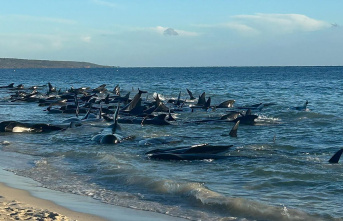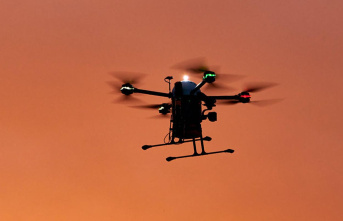As I sit here writing about the energy crisis in South Africa and its impact on the population and the economy, I have exactly 13 minutes to load my laptop, chill my groceries and wait for the washing machine to finish washes. Then begins what the South Africans have become accustomed to for over ten years, the so-called "load shedding". But it's never been as bad as it is now.
The state-owned electricity company Eskom, which has a monopoly position in South Africa's energy supply, switched off the power according to plan. Depending on the level, this can happen up to three times a day for more than 4 hours, in some areas it gets dark for up to 13 hours a day. I'm currently in level 6 of 8. That means for this day: power failure from 4 a.m. to 6.30 a.m., from 12 p.m. to 2.30 p.m. and from 8 p.m. to 12.30 a.m. Why? To avoid complete blackout. Eskom's motto is: save electricity to avoid overload, meaning that more electricity is consumed than is produced. That would mean that the light would have to be off for several days.
Andre de Ruyter, the head of Eskom, told the "Tagesschau": "We would like to remind the public that load shedding is only used as a last resort. It ensures that the power grid and the national supply remain functional."
But why is saving necessary at all? The allegations against Eskom are corruption and mismanagement. Added to this is the criticism of the government, which is enriching itself from the crisis and does not intervene at the right time, even though it has a great influence on the electricity company. "We are dealing here with very clear mismanagement," says a winemaker from Paarl to Stern, who wishes to remain anonymous. "Since I can't rely on the government, I've now bought a generator." The harvest is in a few weeks, cold processing of the grapes requires electricity. Something you can't rely on these days. "Hopefully that comes Generator on time, if not I could lose my entire grape harvest and annual income.”
It's about existence. Imagine you are in an ice cream shop and suddenly the power goes out. How long does the ice stay cool? Cold chains are broken, so food can also spoil, especially when it comes to meat or fish. If you can, invest in a generator. When the light goes out, it hums a few seconds later and the generator starts, which in turn is operated with diesel and eats up to 20 liters an hour. Only those who have the wherewithal can afford it. Many restaurants have already had to make large investments. For example, in new checkout systems because the old technology couldn't cope with the sudden power loss, or in new cooling systems. Some restaurateurs also failed and had to close forever.
For the people of Europe, where the electricity flows reliably, this is unimaginable, but not impossible. We are still spared from this scenario, you can already learn from it. More and more companies and private individuals are investing in renewable energies. Energy expert Mohamed Madhi welcomes this development, as he reports to the "tagesschau": "We see how solar systems are sold and accepted by companies and private individuals," he says. "We know that solar cells are selling like never before in this country. Solar energy mixed with other forms of energy is an alternative to Eskom." This is also confirmed by a spokesman for the "Creation" winery, which was voted Africa's best winery in 2022. "We produce almost 70 percent of our electricity with solar energy. Sometimes we have too much electricity, we can't store it yet. When the solution becomes a problem."
Power cuts are a sad part of everyday life in South Africa. Then traffic lights fail at major intersections, the police have to help out and coordinate the traffic, otherwise there will be long traffic jams. In some restaurants and cafés there are signs in the window panes "Back by 4 pm when electricity is back on". We'll be back by 4 pm when the electricity is back on. Just at this moment my accommodation also beeps, the familiar sound that the lights are now going out. Time to reflect on how natural the energy that we are allowed to enjoy in Germany is.











